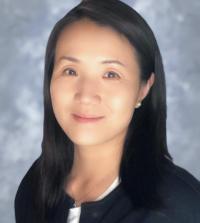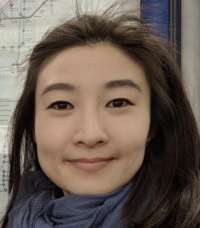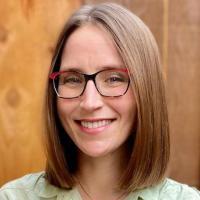CBS Welcomes Three New Faculty Members for 2021-2022 Year
Xiaomo Chen, Ph.D., Assistant Professor of Neurobiology, Physiology and Behavior, joins the Center for Neuroscience
For the 2021-2022 academic year, the college is proud to welcome three new members to its faculty. Below you’ll learn more about the research interest of each faculty member, and what brought them to UC Davis.
Xiaomo Chen

Xiaomo Chen joined the Department of Neurobiology, Physiology and Behavior as an assistant professor in September 2021. Chen is core faculty at the Center for Neuroscience and affiliate faculty at the Center for Neuroengineering and Medicine. Before joining the UC Davis faculty, she was a postdoctoral fellow at Stanford University.
Chen earned a Ph.D. in psychology and brain sciences from Johns Hopkins University, a master’s degree in biomedical engineering from Tsinghua University and a bachelor’s degree in biomedical engineering from Huazhong University of Science and Technology.
Chen’s research in the Cognitive Control Lab at the Center for Neuroscience focuses on high-level visual cognitive functions, including oculomotor decision-making and selective visual attention. She aims to develop innovative approaches that will help researchers further understand and potentially enhance these functions.
When asked why she joined the UC Davis faculty, Chen said, “The broad expertise and impressive scientific depth in neuroscience research at the college and at UC Davis, as well as the culture of cross-disciplinary collaboration, provides an ideal environment to successfully pursue a research career.”
“Beyond research, I also enjoyed the very collaborative and welcoming environment at UC Davis,” she added. “I also love its lively and beautiful campus. I look forward to contributing to this great team!”
Taiyi Diana Kuo

Taiyi Diana Kuo will join the Department of Neurobiology, Physiology and Behavior in January 2022 as an assistant professor. Before joining the UC Davis faculty, she was an associate research scientist at Columbia University Medical Center’s Naomi Berrie Diabetes Center.
“I am interested in metabolism and what goes wrong during the progression of diabetes—a major metabolic disorder that affects millions in the world and shows no signs of slowing down,” said Kuo. “The goal of my research focuses on understanding the molecular processes, especially in the nucleus, that take place in the pancreatic beta cell during the disease development.”
Kuo earned both her bachelor’s degree and Ph.D. at UC Berkeley, where she majored in molecular and cellular biology. During her graduate studies, Kuo investigated glucocorticoid receptor signaling and insulin sensitivity in skeletal muscle. She expressed excitement about joining UC Davis.
“Through my interactions with UC Davis faculty members, I learned that the Department of Neurobiology, Physiology and Behavior is scientifically excellent, collaborative, sincere and nurturing—an ideal environment for me to start my lab,” said Kuo. “Moreover, I have a passion for teaching. I look forward to the opportunity to help shape the next generation of students.”
Brie Tripp

Brie Tripp joined the Department of Neurobiology, Physiology and Behavior as an assistant professor of teaching in the fall of 2021. Prior to joining the faculty, she was a postdoctoral fellow at San Francisco State University, where she investigated inclusive curriculum in anatomy and physiology education, and explored faculty perceptions of language used to teach biology.
Tripp earned a Ph.D. in biology from Portland State University. “I conducted biology education research related to interdisciplinary curricular design and the measurement of undergraduate sciences students’ ability to address real-world problems through an interdisciplinary lens,” said Tripp. “I also leveraged critical science paradigms to explore faculty’s perceptions of barriers to interdisciplinary work in academia and ways to move the field forward toward more equitable partnerships across disciplines.”
Tripp said she joined the College of Biological Sciences’ faculty due to its “exceptionally diverse student population.”
“I’m from the Central Valley and want to give back to students who hold these marginalized and, often, intersecting identities,” she said. “By engaging these students in equity research, we can start to chip away at the structural inequities within the culture of science.”
